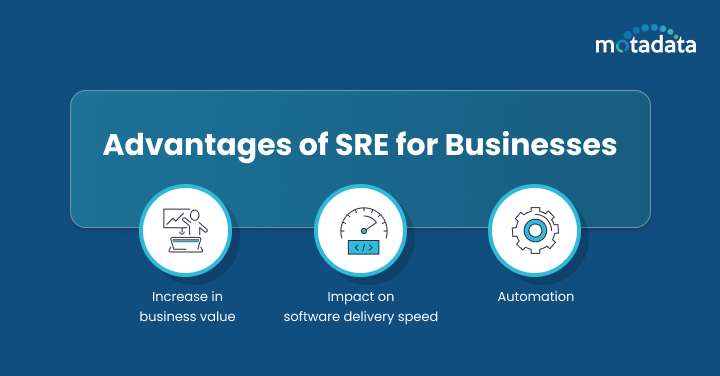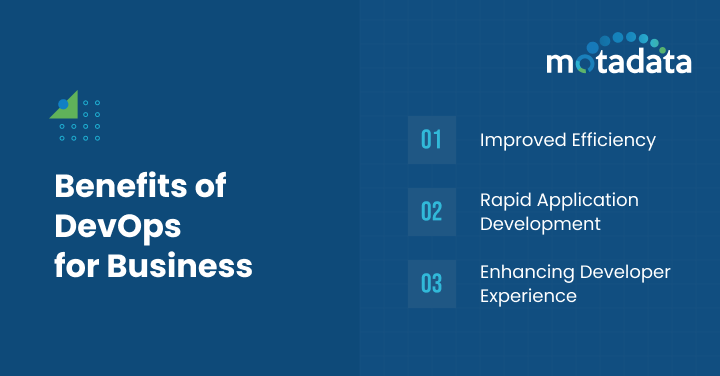In the evolving world of technology, organizations are continuously working to increase their system stability, deliver software faster, and help their programmers work better. Different disciplines, each with its own distinct set of roles and responsibilities, have arisen to accomplish these goals.
Site Reliability Engineering (SRE), Platform Engineering, and DevOps are the three main disciplines that work around optimizing and organizing various facets of the software delivery and deployment life cycles.
They all may sound similar but are different in various aspects. Let us discuss each discipline in detail highlighting their responsibilities, benefits, and point of difference.
What is Site Reliability Engineering (SRE)?
Google’s practices gave rise to Site Reliability Engineering (SRE), a discipline that focuses majorly on enhancing system reliability and application performance. Its main objective is to maximize service level dependability by minimizing downtime and system performance problems.
Also, it includes monitoring system health, incident management, change management, and installing incident response systems that operate automatically.
SRE measures system performance and reliability using insights derived from data. Businesses can pinpoint opportunities for development and make well-informed decisions to optimize their operations and infrastructure by evaluating relevant information.
It’s a bit challenging and costly to hire SREs. Many firms do not employ SREs with sufficient experience to fulfill their setup requirements.
What is Platform Engineering?
Platform Engineering is another discipline that focuses on maintaining the internal developer platform that helps developers easily build, deploy, and manage all applications.
Platform engineering aims to provide well-structured collections of services, tools, infrastructure, and resources that developers may utilize without having to manage them directly or with a thorough understanding.
It automates infrastructure management, continuous integration, continuous delivery, and several parts of the software delivery process to increase developer productivity and efficiency as well as reduce time spent on IT infrastructure management.
Further, Platform Engineering integrates compliance controls, rules, and security best practices throughout the development and operations process. Businesses can reduce risks and safeguard confidential information by making sure that their infrastructure and apps are compliant and secure.
What is DevOps?
Development and operations, or DevOps, is a set of practices that emphasizes teamwork, automation, and integration between software development and operations teams.
Prior to the advent of DevOps, development (dev) and operations teams (ops) operated in separate silos. While operations teams were in charge of ensuring the software was successfully deployed, they had little understanding of the real software and developers write code without knowing the production environment in which it would live. As a result, there were multiple errors often found in production and ineffective debugging.
To minimize these human errors, the practice of DevOps was introduced with the intention of bridging the gap between software development, continuous delivery, and IT operations.
This practice later helped expedite software delivery, and improve software quality and business value.
Further, Security and compliance are integrated from the beginning into the development and operations pipeline by DevOps. Businesses can reduce risks, safeguard sensitive data, and guarantee regulatory compliance by putting security best practices, automated compliance checks, and thorough monitoring and auditing into place.
SRE vs DevOps vs Platform Engineering: Roles & Responsibilities
SRE, DevOps, and platform engineering, all of these disciplines share a common goal, i.e., speeding up the software delivery process and improving system reliability. However, each has its own role and responsibility that makes it different from one another.
SRE professionals prioritize incident management and system reliability. They work with the software development teams to improve administration tasks and reduce crisis incidents, thus enabling the creation of a scalable software system that would your business needs.
Further, they include capacity planning and reliability testing tasks in their practice.
DevOps engineers, on the other hand, rely on IT operational practices and software development methodologies to improve developer productivity and ensure smooth software delivery operations.
It includes various tasks such as proper collaboration, deployment automation, continuous integration, and infrastructure management.
Lastly, platform engineers use the same skills and abilities found across DevOps but differ in role. It focuses on building and maintaining the internal developer platform that accelerates software delivery.
It includes automation tasks, managing configurations, provisioning infrastructure, and supporting the development needs of an application.
Each discipline has its own role and responsibilities, but together they can create a scalable platform with a robust software delivery process driving more business value.
Advantages of SRE for Businesses
There are several advantages to implementing Site Reliability Engineering (SRE) within an organization, including:
1. Increase in business value
SRE’s main role is to ensure that everything works smoothly and the team responds to incidents quickly. They identify potential performance issues in a system and take action in real-time before they escalate.
This practice helps businesses run with less interruption and downtime, resulting in better user experience and satisfied customers. Also, it helps increase business value.
2. Impact on software delivery speed
SRE integrated software engineering techniques into system administration tasks to speed up the process of application development resulting in the creation of a scalable software system.
Further, with this integration, now software teams can focus on other areas, such as making new features and improving existing applications.
3. Automation
With the automation feature, the productivity of software delivery processes is increased by SRE as there are minimal human errors. Further, software distribution is guaranteed to be reliable and consistent while also saving time and money.
Benefits of DevOps for Business
Let’s explore the benefits of adopting a DevOps culture within an organization:
1. Improved efficiency
DevOps teams facilitate fast application deployment by optimizing and automating several parts of the software delivery process. Continuous delivery, deployment automation, and integration techniques save development cycle times and boost overall productivity.
This altogether his enables enterprises to promptly address market needs and provide software solutions with optimal efficiency.
2. Rapid application development
DevOps teams foster seamless communication, knowledge sharing, and collaboration by bringing together development, operations, and other stakeholders.
This shortens the time to market, quickens development cycles, and enables companies to innovate and quickly adapt to shifting customer demands.
3. Enhancing developer experience
DevOps teams free up engineers to work on core development activities by automating manual labor and streamlining development procedures. This leads to increased productivity, satisfied employees, and better software quality.
Benefits of Platform Engineering for Businesses
Here’s how platform engineering contributes to business:
1. More scalable platforms
Platform engineers use best practices and relevant tools to create and manage platforms that can grow with changing business requirements. These platforms are easily scalable, giving businesses the ability to grow and adapt without compromising software performance. They also offer a strong base for application development.
2. Enhances developer productivity
Platform engineers facilitate the development process by giving developers access to automation tools and source code management systems. As a result, this frees up developers to concentrate on adding new features, improving software, and optimizing productivity.
3. Reduces redundancy
By optimizing systems and processes and removing pointless duplication of work or resources, platform engineering lowers redundancy. Hence, platform engineering develops centralized solutions that can be used throughout the company, saving time, effort, and resources, as opposed to having numerous teams or systems carry out the same task simultaneously.
SRE vs DevOps vs Platform Engineering: Understanding the Difference
Even though certain roles & responsibilities may overlap, it’s critical to recognize the main distinctions between platform engineering, DevOps, and SRE. To learn more about each discipline, let’s examine how SRE vs platform engineering vs DevOps differ.
SRE vs. DevOps
SREs collaborate closely with software developers to optimize system performance and apply software engineering techniques to system administration responsibilities.
SREs are essential to optimizing system reliability, cutting down on human labor via automation tools, and improving incident response effectiveness. While DevOps strives to provide smooth communication and collaboration across the software development lifecycle.
They automate deployment automation, infrastructure management, continuous integration, and other parts of software delivery operations to increase productivity and business value.
While increasing reliability and agility are similar goals shared by both SRE and DevOps, their approaches and focuses are different. SRE prioritizes engineering techniques for reliability, whereas DevOps focuses on procedural and cultural enhancements for teamwork.
SRE and Platform Engineering Differences
Both contribute to the software delivery process but differ in roles. The three main areas of emphasis for SRE are system performance, incident management, and reliability, whereas, platform engineering serves the needs of application development by creating and managing the internal developer platform.
Software developers and SRE teams collaborate closely to guarantee scalable software solutions. Although platform engineers work with development teams to comprehend their needs and provide reliable platforms.
SRE vs. Platform Engineering vs. DevOps – Use Cases
Since, SRE helps businesses satisfy service level agreements and address system performance concerns by managing incidents, responding to crises, and continuously monitoring system performance, they are perfect for organizations that need to maintain high availability for important services. for example, cloud, banking, and e-commerce platforms.
However, for organizations that prioritize infrastructure management, developer productivity, and application development demands, platform engineering is crucial.
Businesses implementing serverless computing, containerization, or microservices architectures require platform engineering.
Since DevOps promotes efficiency, teamwork, and automation by coordinating software delivery procedures with business value, it is widely used in many different industries and creativity in software delivery for small and large businesses.
SRE vs Platform Engineering vs. DevOps – Tools
In order to automate incident management, system performance monitoring, and crisis response, Site Reliability Engineering (SRE) uses a variety of tools.
System performance problems can be monitored, managed, and fixed by SRE teams with the use of incident management technologies including dashboards, ticketing systems, and incident management systems.
Automation tools like Terraform and Ansible help reduce human labor, guarantee system uptime, and improve incident response effectiveness.
Platform engineering uses tools to handle infrastructure, automate software delivery procedures, and assist in application development. Source code managers, like Git, facilitate developer collaboration, version control, and code review.
Platform engineering teams use infrastructure as code tools like Kubernetes and Docker, which enable scalable infrastructure management.
Teams working in DevOps use a variety of tools to automate deployment, continuous integration, and software delivery operations. Continuous integration systems, like Travis CI and Jenkins, let developers run tests automatically and find bugs in software.
DevOps teams also frequently use cloud platforms, infrastructure management tools, and collaboration platforms.
SRE vs Platform Engineering vs DevOps in the Automation Era
The use of automation by businesses to increase productivity and reliability will make SRE, Platform Engineering, and DevOps more and more important.
Automation will allow teams to concentrate on innovation and value delivery, simplify repetitive operations, and provide predictive analytics for proactive issue management.
Important elements of SRE practices include configuration management tools, infrastructure automation platforms, and automated incident management systems.
Teams responsible for SRE can concentrate on more strategic work, guarantee scalable software, and improve crisis management effectiveness by automating lower-level tasks.
Platform engineering teams ensure scalable platforms that facilitate quick application development by empowering developers and streamlining the development process through the automation of lower-level tasks.
DevOps teams can improve developer productivity, speed up software delivery, and match software delivery processes to business requirements by embracing automation.
SRE vs Platform Engineering vs DevOps: Which One Should You Choose?
Choosing among SRE, platform engineering, and DevOps can be a challenging task but it completely relies on different factors, such as the development process, software delivery requirements, and business value.
Site Reliability Engineering (SRE) is a good option if you aim for service-level objectives and maintaining service-level agreements, incident management, and system reliability. SRE ensures minimal downtime and system performance issues by concentrating on crisis management and system performance.
However, platform engineering is the best option if your main concerns are scalable platforms, developer productivity, and application development requirements.
Platform engineering gives developers access to dependable infrastructure, automation tools, and platforms, facilitating the quick development of applications and the regular release of new features.
Organizations looking for efficiency, quick application development, and automation tools will find DevOps to be suitable because of its collaborative, automated, and integrated culture.
The decision between SRE, Platform Engineering, and DevOps ultimately comes down to the particular requirements and objectives of your company. To ensure that the choice you pick best fits your company, take into account your unique demands and goals.
Assessing your needs and comprehending the advantages of each strategy will assist you in making a well-informed choice that supports your corporate goals.
FAQs
The skill sets needed for employment in DevOps, platform engineering, and site reliability engineering (SRE) differ, but they all need a combination of technical and soft skills.
Strong backgrounds in automation, incident response, and systems administration are common among SRE team members.
Teams specializing in automation, infrastructure management, and software engineering make up platform engineering teams. However, DevOps specialists are skilled in a variety of areas, such as infrastructure management, software development, deployment automation, and teamwork.
Superior problem-solving, communication, and teamwork abilities are necessary for all roles; nevertheless, the emphasis will vary according to the specific duties and fundamental values of each role.
The core principles of DevOps include collaboration, automation, measurement, and sharing.
These guidelines make it possible for teams working on development and operations to collaborate easily, which accelerates the delivery of high-quality software and increases total business value.
SRE applies software engineering techniques to system administration responsibilities, with a focus on system reliability, incident response, and crisis management.
Infrastructure management, increasing developer efficiency, and meeting application development objectives are the main goals of platform engineering.
The fundamental ideas of each discipline vary depending on their unique goals, tasks, and duties, even though there may be some overlap.
A platform engineer creates and manages the underlying infrastructure, which is a critical component of the development and operations pipeline. They work together with developers to comprehend their needs and make sure the platform satisfies them while maintaining security, reliability, and scalability.
In order to enable proactive problem resolution and reduce downtime, Platform Engineers establish alerts to notify relevant teams about any issues or abnormalities.
Further, to make infrastructure provisioning, configuration management, and deployment procedures more efficient, they create and maintain automation frameworks, tools, and scripts.
Adopting SRE, Platform Engineering, and DevOps approaches can be difficult for enterprises for a variety of reasons, such as
- cultural resistance to change
- skill gaps
- lack of collaboration between teams
- difficulty in integrating automation tools
- implementing a culture of continuous improvement.
- Security and Compliance Concerns
- integrating existing processes and systems into a unified framework
In order to increase system stability and software delivery velocity, SRE, Platform Engineering, and DevOps are essential components. Process automation, monitoring, and incident response are the main emphasis of SRE.
Platform engineering creates software deployment tools and infrastructure. DevOps encourages cooperation between the teams responsible for development and operations to expedite the delivery of products.
Future trends influencing SRE, Platform Engineering, and DevOps include
- Sustained Integration of AI and Machine Learning
- Quantum computing implications
- Shift toward serverless architecture
- Automation and observability technologies
- Rise of GitOps for infrastructure management
- Troubleshooting distributed systems
Effective system deployment and maintenance also depend on cooperation between the development, operations, and security teams as well as cloud-native technologies.








